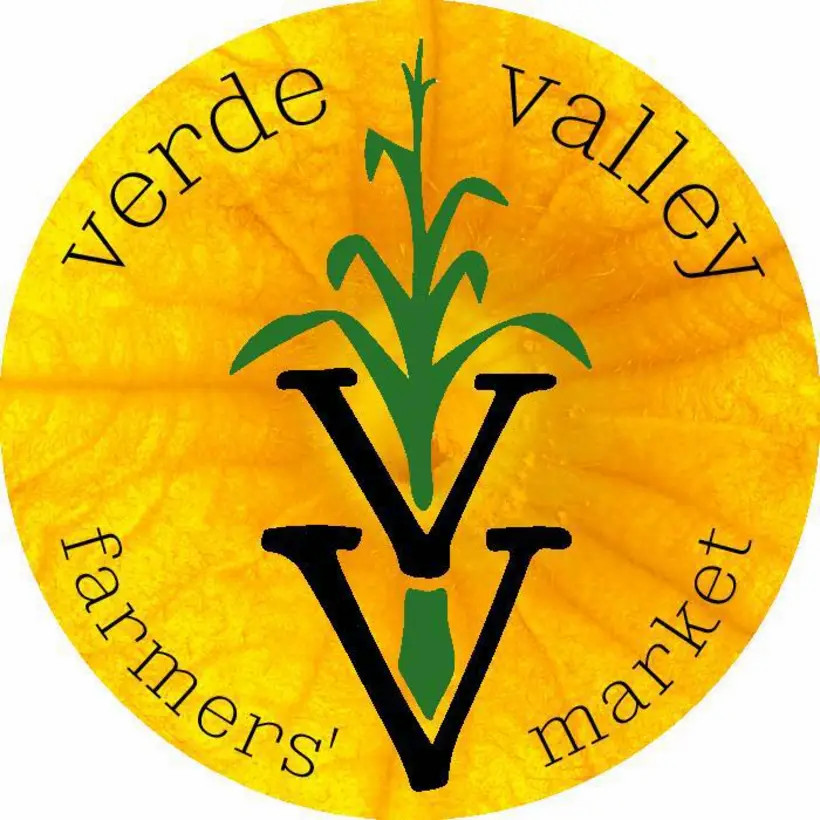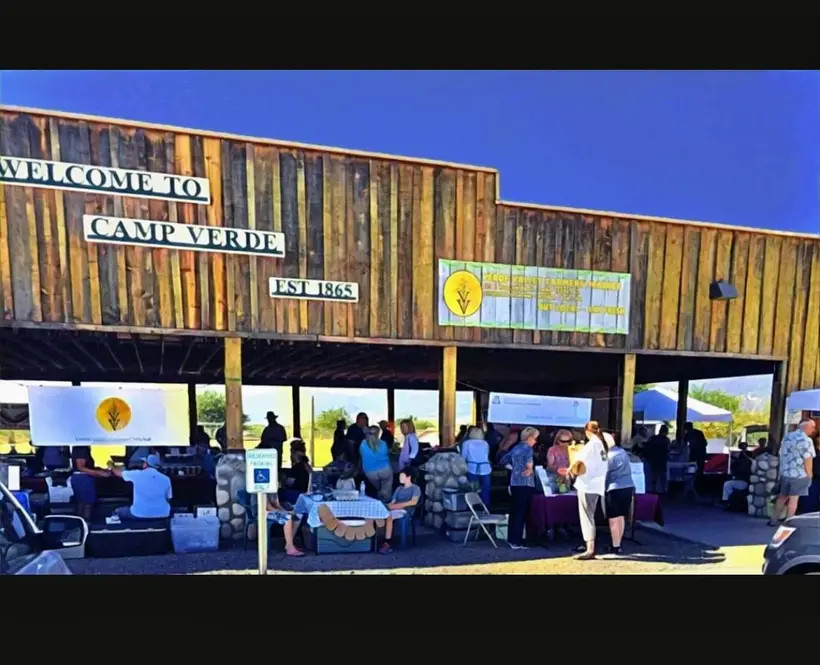Meet Don Kovacovich | Verde Valley Farmers Market Manager & Local food grower


We had the good fortune of connecting with Don Kovacovich and we’ve shared our conversation below.
Hi Don, how does your business help the community?
As a farmer and market manager I believe growing and supporting local supply chains are critical to a robust and resilient economy. For example our market prioritizes vendors from Yavapai and Coconino county. The downstream effect of this is that money spent at the farmers market stays in the community. In the case of grocery stores, while they do hire local workers the vast majority of money spent by locals goes off to corporate which is usually made up of multinational conglomerates leaving the local economy for good. What is left for the local economy is simply the wages paid to workers which are often not enough to support a living wage further burdening the local economy by limiting disposable income. This is resulting in the shrinking of the middle class in America which has serious implications for the future of Democracy.
Our model not only functions as an incubator for small business but also allows consumers to shop directly with producers. If you spend $20.00 on a cut of local beef, you are not only supporting the local beef producer but you are also supporting the local feed store where they get their grain, you are supporting the local veterinarian who is caring for the livestock , you are supporting the local slaughterhouse, possibly a local website designer or marketing coach. Profits are not going off to tax havens but staying right here in your neighbors pockets or bank accounts.
Building supply chain resiliency is also a critical part of our mission. As the COVID pandemic was in full swing we began to see how fragile our current supply chain models can be. We got a small taste of what can happen when production is controlled by a small amount of international behemoths. If you have 4 major producers controlling 100% of the national supply and two of those go down for whatever reason, you have just lost 50% of your capacity to produce and meet demand. In the case of food supply you cannot lose 50% of production without having a major impact on the average citizen’s quality of life.
However local food supply chains cannot exist in a vacuum. If you have national supply chain failures you cannot expect local producers to appear out of the ether to save the day. However if they exist already and have a local customer base that allows them to stay in business they can certainly step in and help meet supply in the case of a crisis. Building and supporting these producers to have a strong foundation is a big part of our mission statement.If you support them now, they will be there to support you in the future.
As for helping the world we can also play a major role through environmental impacts. Look at shipping for example. A local producer may drive 50 miles to get their products to market. Where did the beef, vegetables, fruit, chicken in your local grocery store come from? I would be willing to bet you have no idea. Maybe Texas, or Argentina or even New Zealand. That is a lot of emissions for something that can be produced with better quality and less presevatives a couple of miles away. I could go on and on with examples of the devastation to soils brought on by mono cropping, the fact that local producers tend to live on the land they use to produce and are therefore better stewards, child labor in meat packing plants etc…. Finding and supporting solutions to the problems mentioned above is what keeps me motivated and what brought me into this field in the first place. There is so much opportunity for good within a community by using and supporting these local based models.
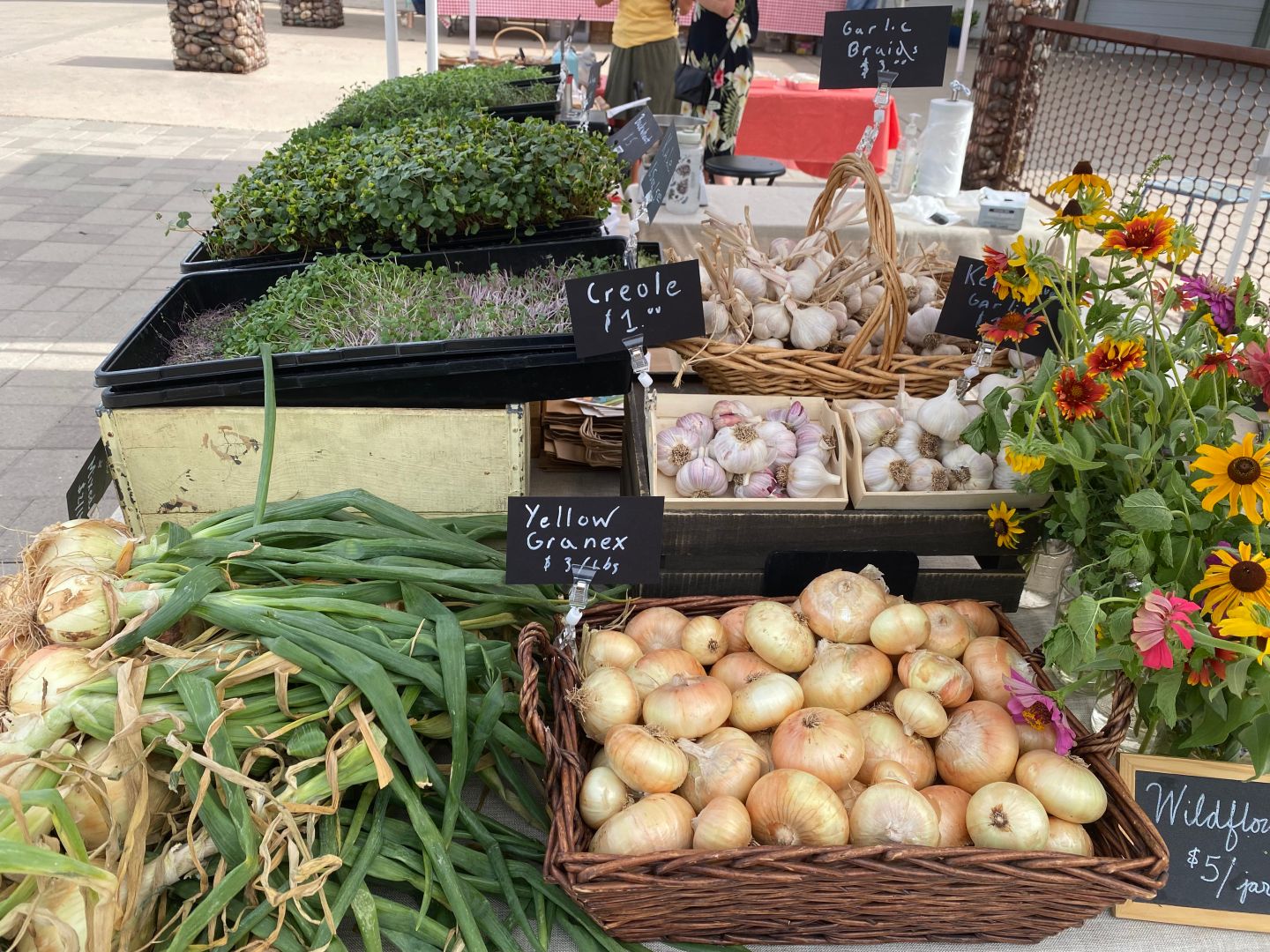
Let’s talk shop? Tell us more about your career, what can you share with our community?
The Covid pandemic threw my entire professional career for a loop. I say a loop because it eventually came full circle.
My family has been in the food business in Arizona since 1908. Starting in Jerome, my Great Grandfather Emil Kovacovich started a mercantile store that was one of the first to compete with the mine’s “company store”. He eventually expanded to other communities in the Verde Valley including building the oldest standing commercial building in Cottonwood, AZ. However his and many of the local businesses were still dependent on the economy built around the mine.
When the mines closed the people left including the customers needed to keep the stores profitable. By this time it was my grandfather William (Bill) Kovacovich in charge of the stores. He used his connections and sales of a liquor license to move to Phoenix to buy a warehouse and became the distributor of Oscar Myers for the entire west coast. My father got his start in the family business driving Oscar Myer’s Weiner Mobile.
Fast forward to 2000 My fathers business is now Kay’s Deli Pack. We are buying cheese and packaging for all major grocers in Arizona as well as some California and Texas accounts. I started as a delivery driver while going to community college for business management. I eventually became warehouse manager, then general manager. Unfortunately I was in this role leading up to the financial crash of 2008. Which was quite a stressful time but also an invaluable experience. My father had foreseen the crash and decided it was time to sell the business.
I swore off the food business for good and pursued a Tourism and Recreation Management degree from ASU which I received in 2010. I first went into Hotel management as Activities manager for Enchantment Resort in Sedona AZ then eventually found myself as Recreation Manager for the San Carlos Apache Tribe Wellness Center. In both of these positions I picked up a lot of experience in employee management and leadership as well event management. Then Covid hit and once again everything changed.
My story is one in which outside factors came in forcing major changes. Looking back at my fathers and grandfathers histories you can see they faced these same adversities. Most likely the reader has similar experiences and histories. The lesson here is you need to be prepared to move with the changes. Things are going to happen that are outside your control. You can only control how you are able to adapt or pivot into new opportunities. Building resiliency is another lesson that I have taken from all this. Building resiliency to outside factors for my community has become the driving force at this stage in my life.
So here we are. Full circle. Back in the food business and back in the Verde Valley. Putting the lessons I’ve learned about building resiliency and adaptation to work with a goal to build infrastructure and local supply chains to support a strong local economy.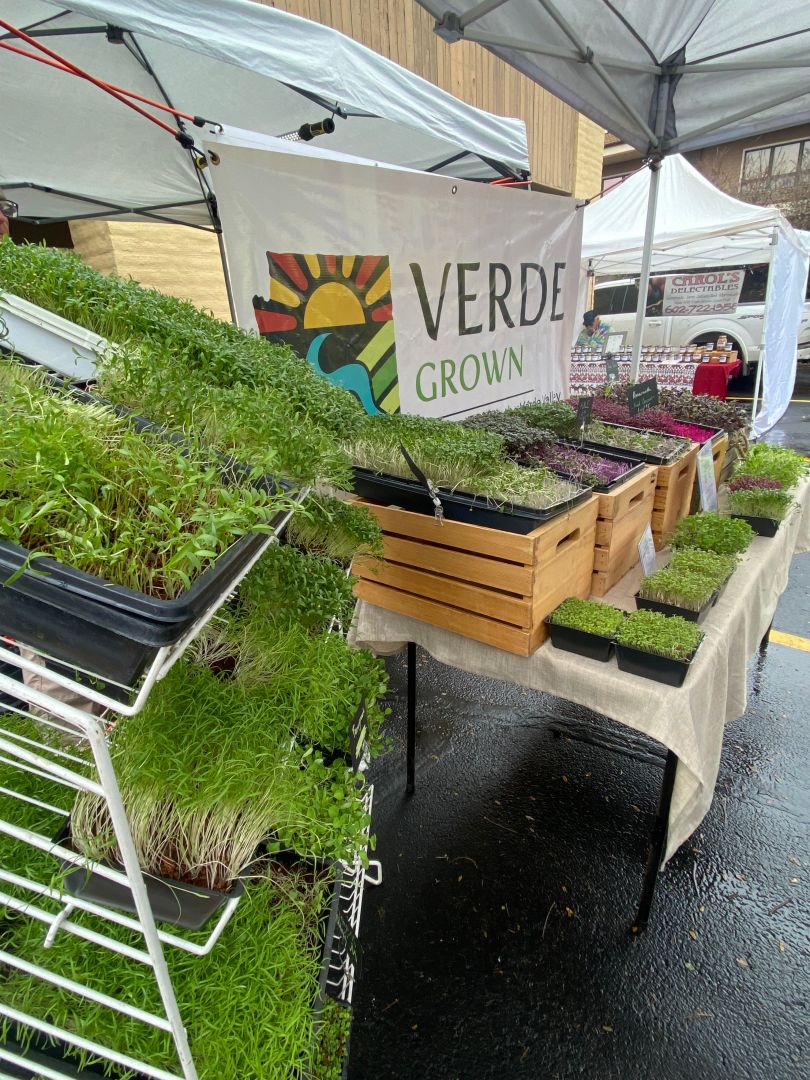
Any places to eat or things to do that you can share with our readers? If they have a friend visiting town, what are some spots they could take them to?
I like the outdoors so depending on weather would be hitting one of the local trails or swimming holes. After that we would get lunch at my current favorite restaurant in the Verde valley, Moscatos in Camp Verde. Followed by a late afternoon visit to Verde Valley Brewery to visit with owner Alex or a local winery. I like Chateau Tumbleweed in Clarkdale but all the wineries are good with their own unique setting vibes and wines. Then back to the ranch for an evening sunset in the backyard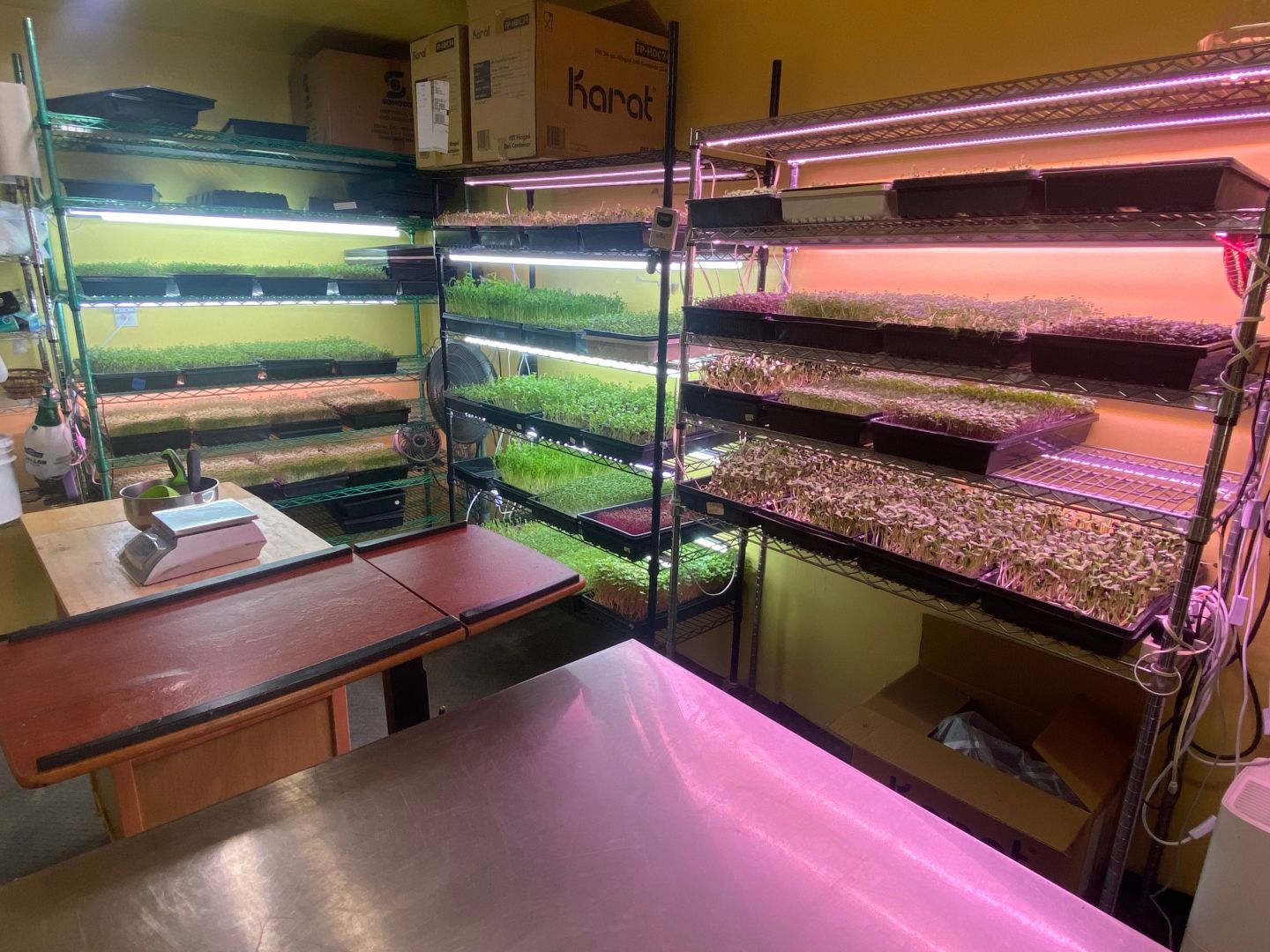
Who else deserves some credit and recognition?
I would like to give a shout out to all the hardworking local food producers working for a better world and better health for themselves and their community.
A special shout out to the Verde Valley Farmers Market, our vendors and our community for the ongoing support.
And of course anyone who supports local products and farmers markets.
Together we can build a local food foundation to support our communities and create a vibrant local economy.